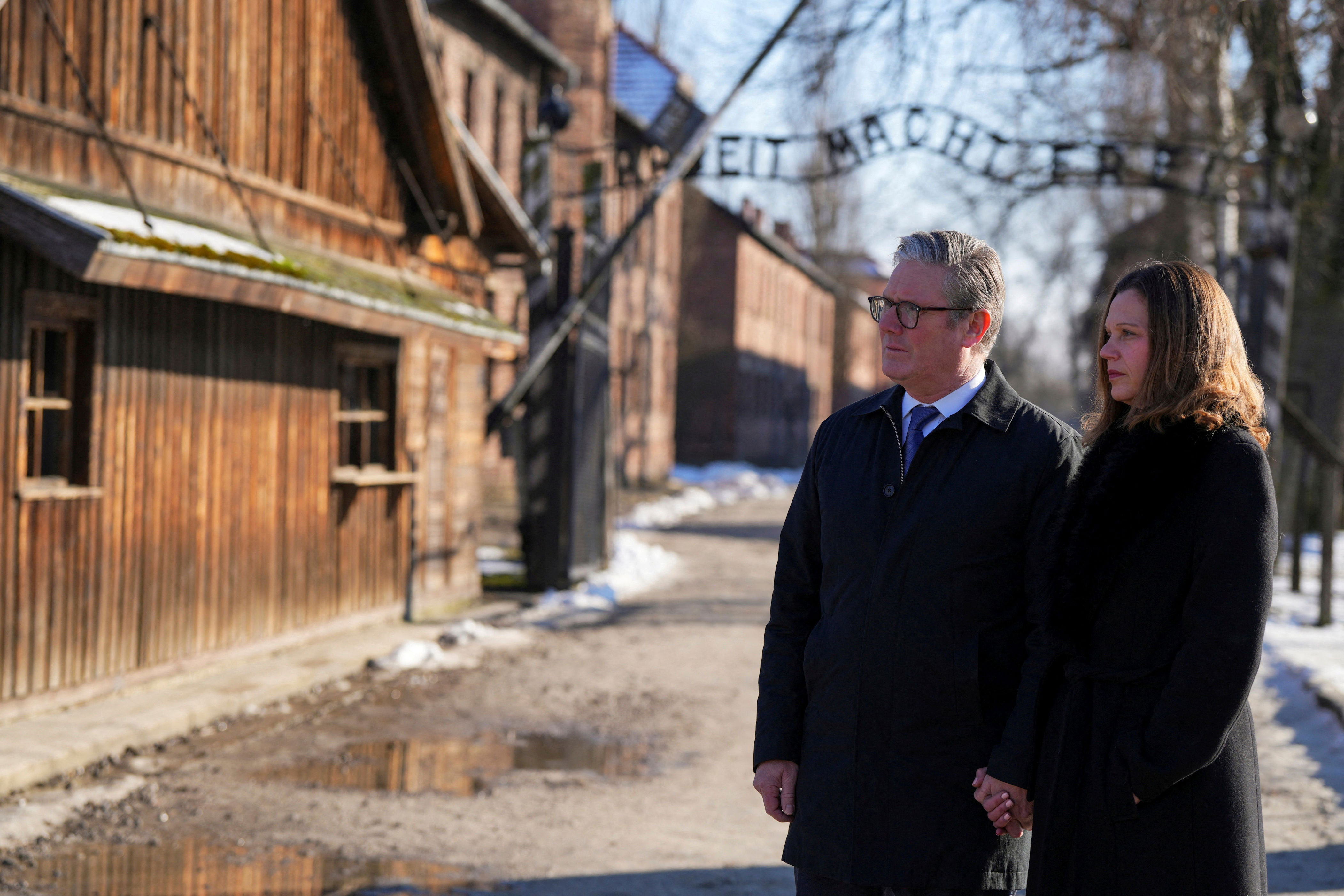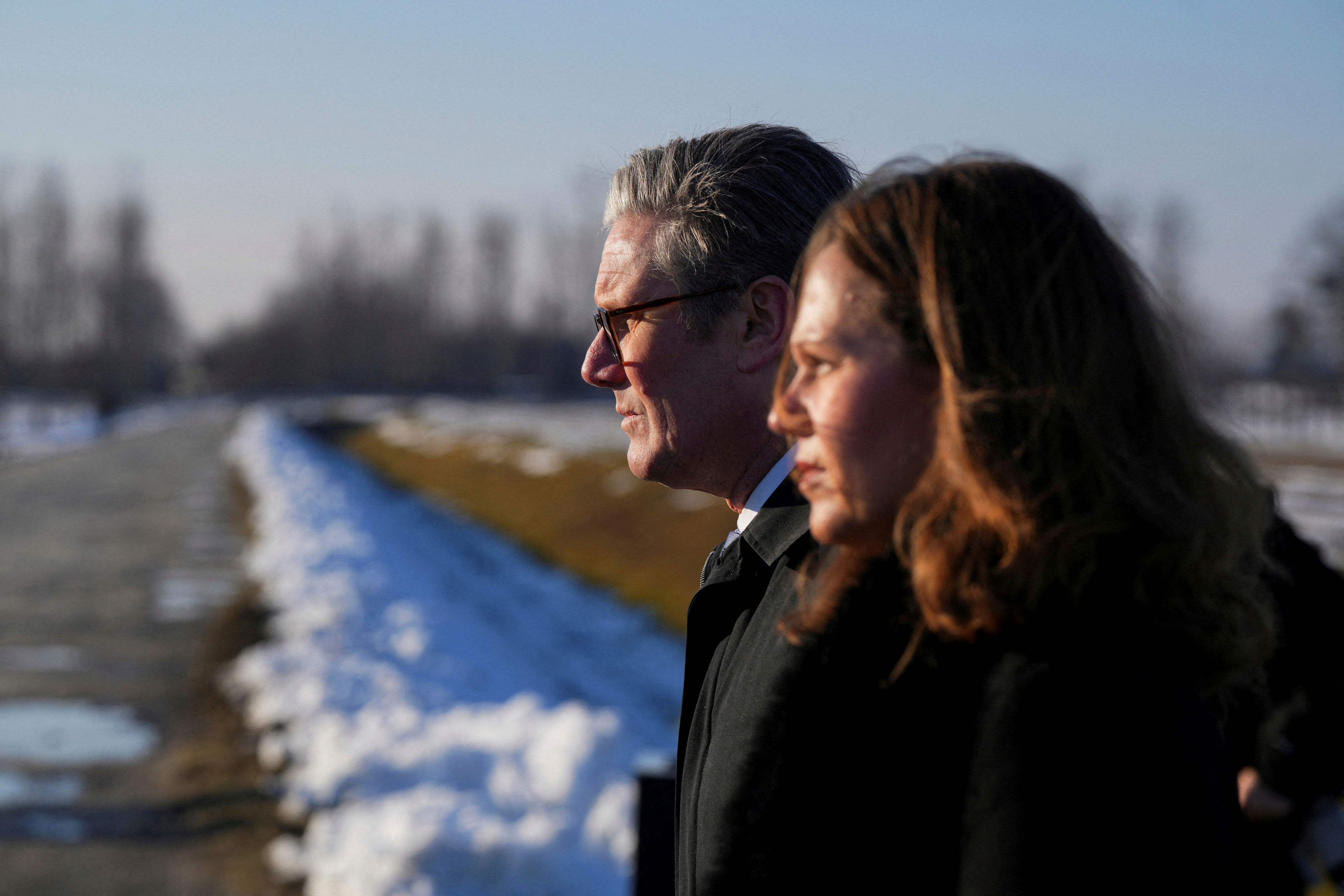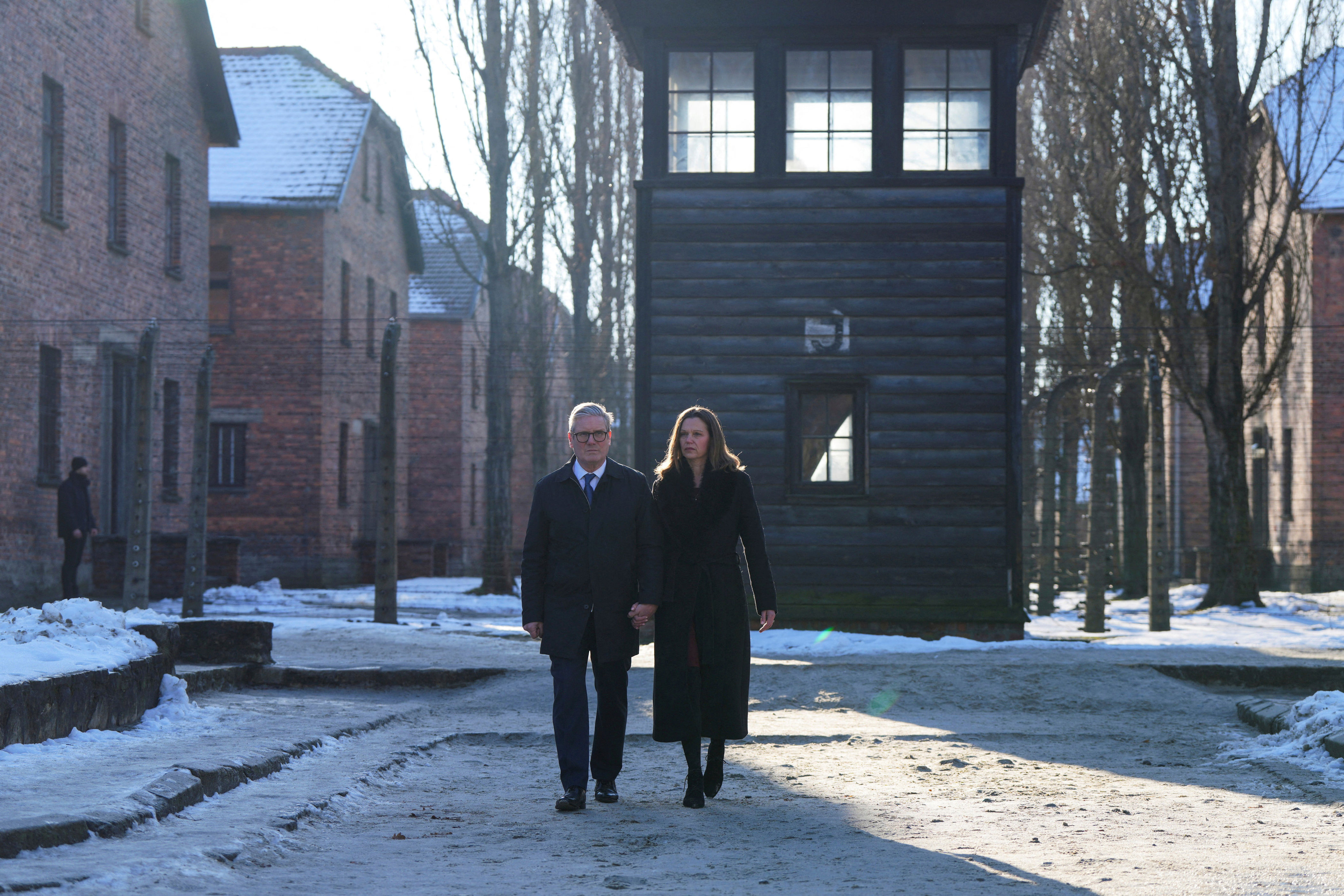alongside her husband, the prime minister, during their visit to Poland.
hand-in-hand with Sir Keir.
The PM said that while it was his first time at Auschwitz, it was his wife’s second. “But [it was] no less harrowing than the first time she stepped through that gate and witnessed the depravity of what happened here,” he added.

In a statement after the visit, Sir Keir vowed to “fight the poison of antisemitism” and pointed to the rise in such hate crimes after the 7 October attacks by Hamas in Israel in 2023.
“Time and again we condemn this hatred, and we boldly say ‘never again’,” he said. “But where is never again, when we see the poison of antisemitism rising around the world in the aftermath of 7 October?
“Where is never again, when the pulse of fear is beating in our own Jewish community, as people are despicably targeted once again for the very same reason, because they are Jewish.
“Nothing could prepare me for the sheer horror of what I have seen in this place. It is utterly harrowing. The mounds of hair, the shoes, the suitcases, the names and details, everything that was so meticulously kept, except for human life.”

Sir Keir said the experience would “stay with me for the rest of my life”.
“So too, will my determination to defend that truth, to fight the poison of antisemitism and hatred in all its forms, and to do everything I can to make ‘never again’ mean what it says, and what it must truly mean: never again,” he added.
Lady Starmer still has members of her extended family living in the Israeli city of Tel Aviv and Sir Keir has spoken about the effect the attacks there have had on his family.

Her father Bernard’s family left the central Polish village of Kolo, where many of the residents were Jewish, for Britain in the 1920s. He was born in Hackney, east London, in 1929.
His wife, Barbara, later converted to Judaism. Sir Keir and Ms Starmer have brought up their children with the faith of their grandfather.
Sir Keir has called the Shabbat dinners they have each Friday night a “rock in the week” for the family, though he admitted it has been difficult while at No 10 to maintain the tradition.

Karen Pollock, chief executive of the Holocaust Educational Trust said the charity was “grateful to the prime minister for leading the way in ensuring that the horrors of the past are always remembered”.
“Nothing can prepare you for seeing the magnitude of this place that was built for the sole purpose of extermination, where approximately a million Jewish men, women and children were systematically murdered”, she said.
“The haunting artefacts, such as the piles of hair, shoes and belongings, bear witness to the unimaginable suffering inflicted here and we have no doubt this visit will have had a profound impact.
“As we mark this milestone anniversary 80 years after the liberation of the camp, at a time when eyewitnesses are dwindling in number and as antisemitism continues to surge, it is more crucial than ever that this history is remembered.”
The visit came as the PM travelled to Poland to meet with the country’s political leaders, following a trip to Ukraine where he met with Volodymyr Zelensky.
He is expected to discuss the new UK-Poland treaty with his counterpart Donald Tusk, which will support both countries working together to protect Europe from Russian aggression and work together to tackle people smuggling gangs.
After his visit to Kyiv, the prime minister confirmed that the UK will discuss deploying peacekeeping troops to Ukraine with its allies, vowing Britain will “play our part” in guaranteeing the country’s security following any ceasefire with Russia.
.


Post a Comment
0Comments